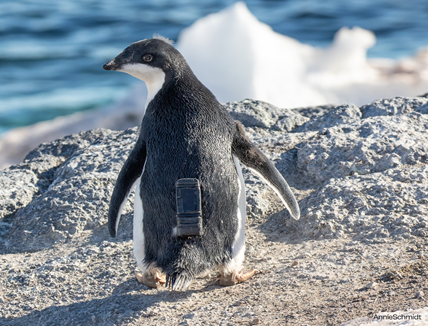
u-blox has provided the US-based company Cellular Tracking Technologies (CTT), a global leader in wildlife telemetry and IoT solutions, with its CloudLocate positioning service to enable scientists to track and monitor the diving and feeding behavior of a large Adélie penguin colony on Ross Island, in Antarctica, one of the harshest environments on Earth.
The project started when Point Blue, an American wildlife conservation leader, contacted CTT for support to develop a tracking device to research the whereabouts of juvenile Adélie penguins on Ross Island. One of only five species of penguins on the continent, Adélie penguins serve as a widely recognized indicator species for scientists, demonstrating sensitivity to shifts in climate and the environment. Monitoring their population is thus crucial for assessing alterations in the marine ecosystem that can result from climate change and human activities like commercial fishing.
Scientists aiming to monitor wildlife for conservation purposes in such remote regions face an array of technical challenges, such as the small size of the Adélie penguins, their speed and the long time spent underwater, and the lack of affordable connectivity. Any tracking device must therefore be extremely light and non-invasive for the animal, as well as consume very little battery power to last longer and prevent multiple replacements. It also has to be extremely data efficient to minimize expensive satellite connectivity costs.
CTT and u-blox collaborated to develop a unique and sustainable monitoring solution embedded within CTT’s Penguin Iridium GPS tracker on the back of the penguin. One of u-blox standard precision GNSS modules, known for its compact dimensions and ultra-low battery consumption, captures the raw location data of a penguin. The u-blox CloudLocate positioning service then offloads the power-hungry positioning calculation from the device to the cloud – saving ten times the energy and facilitating long-term monitoring. The CTT tracker only needs to transmit a tiny 50-byte message, capturing crucial location information within the brief window of around three seconds when the penguin emerges from the water to breathe.
CTT plans to apply the same unique tracking solution for broader wildlife research and conservation efforts.


















